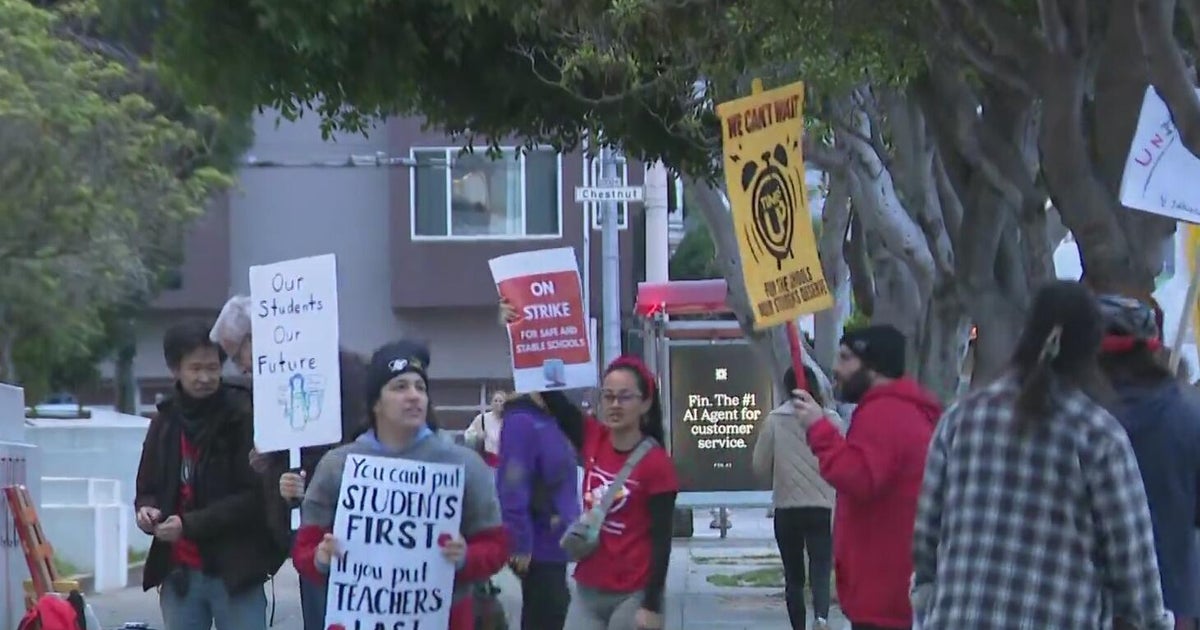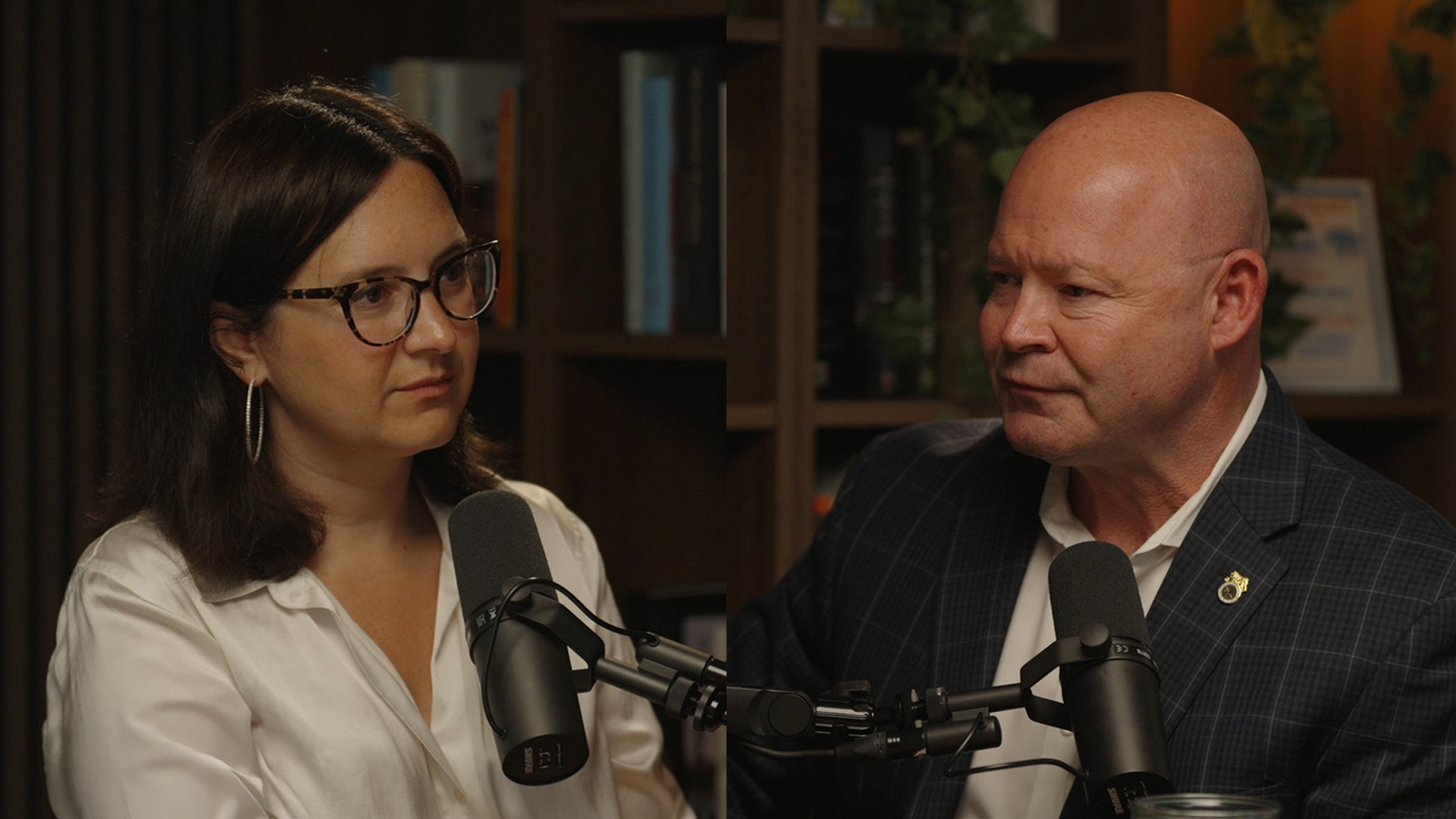Transcript: Barry Diller, IAC chairman and senior executive, on "Face the Nation," July 16, 2023
The following is a transcript of an interview with Barry Diller, IAC chairman and senior executive, that aired on "Face the Nation" on July 16, 2023.
MARGARET BRENNAN: The gears of America's entertainment industry ground to a near complete halt last week when the union that represents actors, SAG-AFTRA, joined writers on the picket line. A disclosure, some CBS News staff are SAG-AFTRA members but work under a different contract than the actors and are not affected by this strike. But to understand who is impacted here we are joined by Barry Diller, a former movie studio head who's currently the chairman of IAC and Expedia. Welcome back to Face the Nation.
DILLER: Thank you.
MARGARET BRENNAN: You know, we were trying to gauge the economic impact of this. And according to the Milken Institute, it could cause $4 billion in economic damage. What do you think the impact will be? And how long will the strikes last?
DILLER: Well, the problem with this particular- all strikes get settled. The issue for this one is, is when. Because you have almost a perfect storm here, which is you had COVID, which sent people home to watch streaming and television and killed theaters. You- you've had the results of huge investments in streaming, which have produced all these losses for all these companies who are now kind of retrenching. So, at this moment, this kind of perfect storm, it's okay if it gets settled in the next month. But I'll posit what happens if it doesn't, and there doesn't seem to be enough trust and energy to get it settled soon. What will happen is, if in fact, it doesn't get settled until Christmas or so, then next year, there's not going to be many programs for anybody to watch. So, you're gonna see subscriptions get pulled, which is going to reduce the revenue of all these movie companies, television companies, the result of which is that there will be no programs. And at just the time, strike is settled that you want to get back up, there won't be enough money. So this actually will have devastating effects if it is not settled soon. And the problem with settlement in this case, is there's no trust between the parties. There are existential issues. Obviously, AI, which I think is just overhyped to death, in terms of the worries that there is and writers are going to be replaced rather than assisted, which is what I think will happen. So- but there's no trust, you have the actors union, saying, "How dare these 10 people who run these companies earn all this money and won't pay us?" While if you look at it on the other side, the top ten actors get paid more than the top ten executives. I'm not saying either is right. Actually, everybody's probably overpaid at the top end. The one idea I had is to say, as a good faith measure, both the executives and the most paid actors should take a 25% pay cut, to try and narrow-narrow the difference between those who get highly paid and those that don't–
(CROSS-TALK)
MARGARET BRENNAN: -- Well
DILLER: -- But
MARGARET BRENNAN: --I want to talk about what you just said in terms of- go ahead.
DILLER: The only other thing I would do, I would call for a September 1 deadline.There's a strike deadline. I think there should be a settlement deadline. Because unless it happens by September 1, the actions and you know, of course, who cares about Hollywood, who cares about it. But the truth is, this is a huge business both domestically and for-for world export. And if it is- these conditions- it sounds like I'm crying to the skies. But these conditions will potentially produce an absolute collapse of an entire industry.
MARGARET BRENNAN: Well, and also, they're all the people who are, you know, paid by the hour who work on these sets who aren't receiving pay when things are shut down. It's not just people in front of the camera here. But on your point about AI and existential threats here- Fran Drescher, the head of the union said, we're all going to be in jeopardy of being replaced by machines. That's not the only industry worried about that. If you were running a studio right now, what restrictions would you put on generative AI?
DILLER: Right now overly hyped as all revolutions that are at the very beginning. You know, the downward consequences of the beginning of a revolution. You know, it can be the Romanovs getting shot and Marie Antoinette losing her head. But in this case, I think the one to three year period, not much is going to happen. But post that there are, of course, all these issues. Now, by the way these issues are not, I believe, relative to some of the worries about replacement. I do not think you're going to replace AI generated actors. I don't think you're going to replace writers. Yes, you can ingest all this stuff and spit out something that sounds like Shakespeare. But guess what? It is not original Shakespeare. And writers will get assisted, not replaced. Most of these actual performing crafts, I don't think they are in danger of artificial intelligence.
MARGARET BRENNAN: Well, the Union wants some say and I guess crafting some guidelines on this. I know AI impacts the publishing industry, because you have said that published content should be- and somehow compensated for if it's plugged into AI to program it. Are you going to seek to sue?
DILLER: Yeah, well, actually, we are a group of us I think are--
MARGARET BRENNAN: -- When?
DILLER: -- it's not that- that group was our- It's not that either Google or Microsoft who are the two real leaders of this in terms of- certainly Google with having a monopoly on advertising. They too want to find a solution for publishers. The problem is they also say that the fair use doctrine of the copyright law allows them to suck up all this stuff. We in the publishing side, do not agree with that. It is- it will be long term catastrophic, if there is not a business model that allows people professionally to produce content. That would be, I think everybody agrees, a catastrophe. The only way to get there is either legislation, or litigation. I think litigation is not going to end up in some courtroom. But I think litigation will hopefully lead to sensible legislation here. What has to happen is copyright has to be- unless you protect copyright, all is lost.
MARGARET BRENNAN: So are you thinking of what like the AP just came to an agreement with Chat GPT, where they have to license AP's archives of new stories in order to plug them into their model? Is that the future for publishers?
DILLER: It's probably- yes. But that's probably meaningless. I mean, that is not going to solve anything. And of course, it's- I understand AP and Chat GPI- GPT, what do they want? They want to continue to suck all this stuff up. They want to, of course, say we're open to commercial agreements. But on the side of those people who are dependent upon advertising, Google, for instance, they say, yes, we'll give you a revenue share. Right now the revenue share is zero. So what percent of zero would you like today? I mean, that's rational. But it's not the point. The only way you get to the point is protect fair use. In other words, protect the copyright.
MARGARET BRENNAN: Are you going to launch litigation soon? And who's this group you referenced your with?
DILLER: Well, it's not fair for me to actually speci- specify the group other than- other than it's the leading- it's leading publishers. And-and yes, we have to do it. It's not antagonistic. It's to stake a firm place in the ground to say that you cannot ingest our material without figuring out a business model for the future. I'll just give you one quick reference point. One- two years ago, when the internet began the internet was deemed free.
MARGARET BRENNAN: Right.
DILLER: And so everybody, all publishers said, Okay, let's put it all up for free. Everything's great. Take it okay. It almost killed publishers. Right. It took 15 years--
MARGARET BRENNAN: I got to wrap here.
DILLER: It took 15 years to get back paywalls that protected publishers. I don't think that same thing is gonna happen.
MARGARET BRENNAN: Barry Diller, I love having you. Hope to have you back soon. Gotta go.



